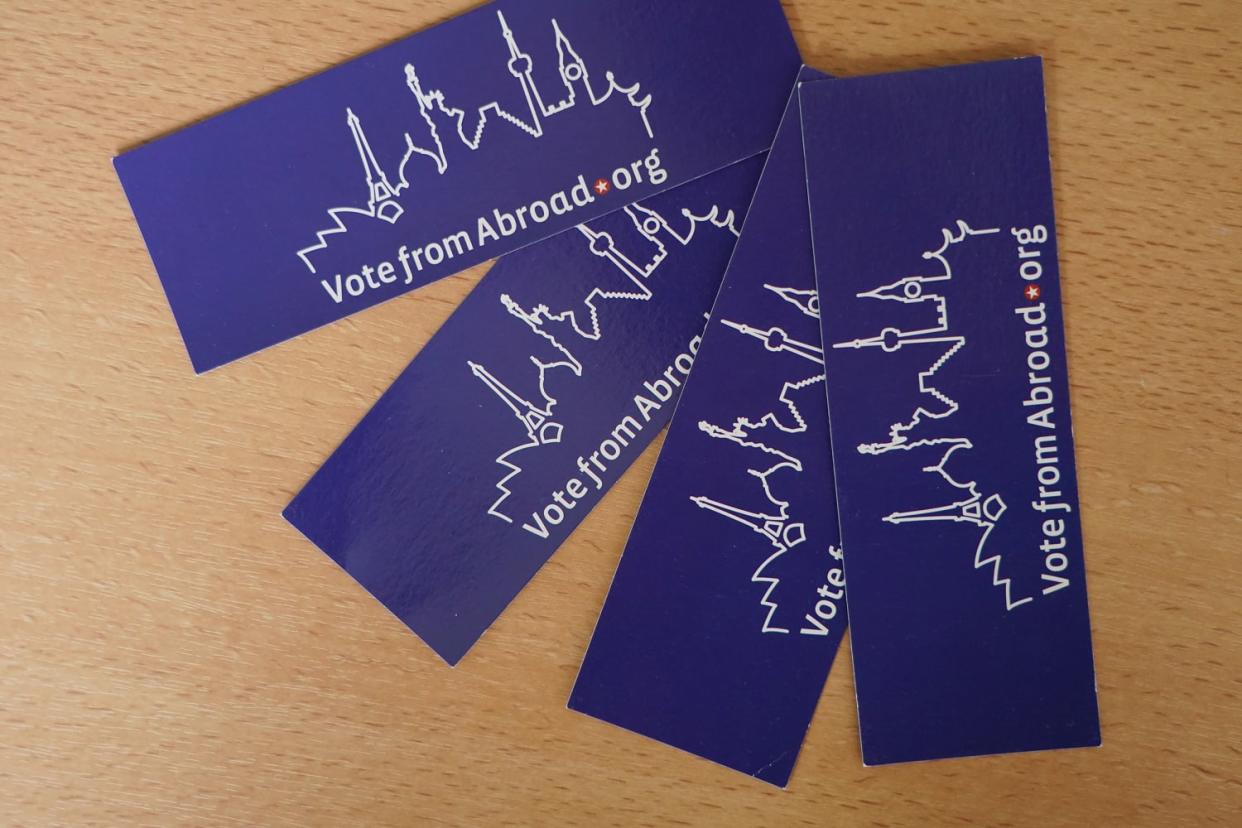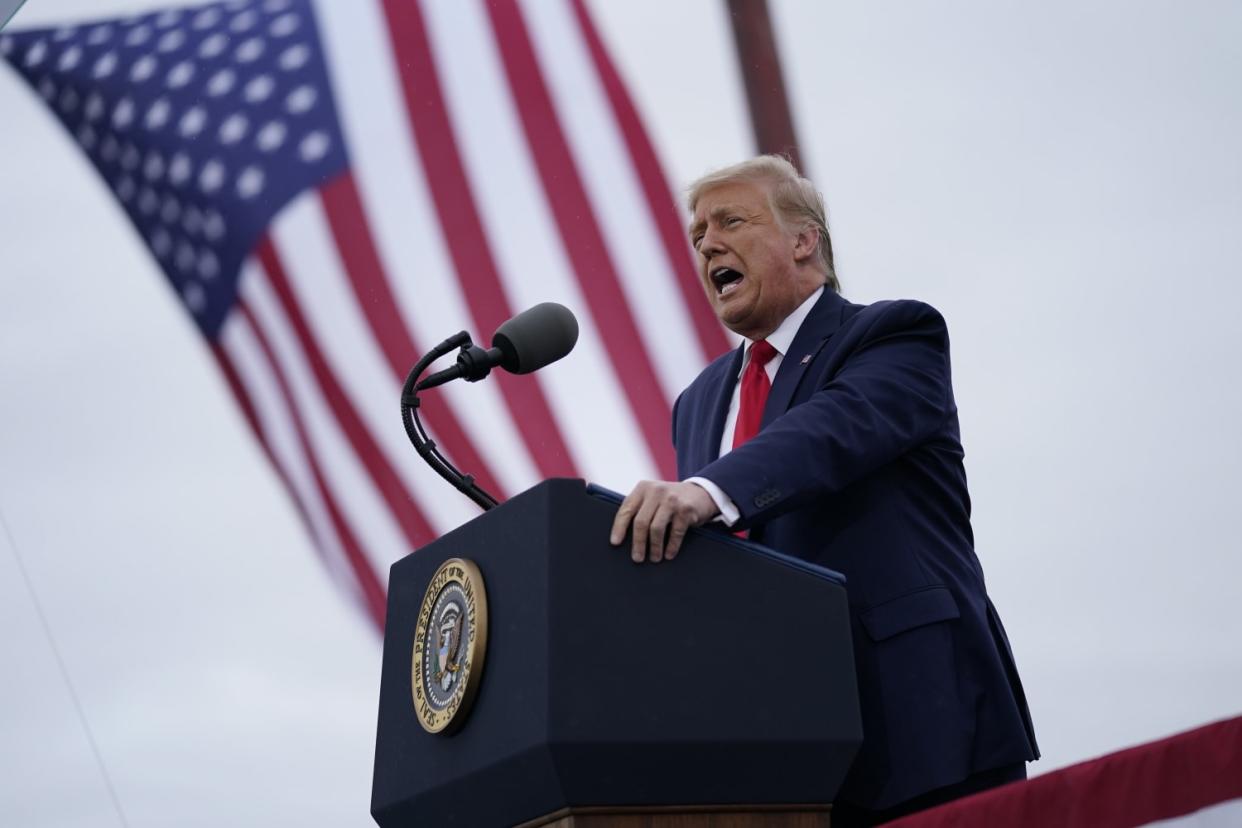Postal service issues leave Americans abroad fretting over their votes
As the countdown to the presidential election ticks away, so does the time for an estimated 9 million Americans living abroad to cast their absentee ballots.
In ordinary times, an expat simply had to request a ballot from the last state he or she lived in, complete it and mail it back to the board of elections.
But 2020 is anything but normal.
With the COVID-19 pandemic affecting mail networks all over the world, Americans around the globe have expressed concern that it could have serious ramifications for the 2020 vote — and democracy advocacy groups and political activists are warning that time is running out.
Susan Dzieduszycka-Suinat, president and CEO of U.S. Vote Foundation, a nonprofit offering voter services, said callers to her organization's help line had serious concerns.
"In my 16 years doing this, I have never seen or experienced anything like it. … It's a level of hysteria that I have never experienced before," she said in a telephone interview.
Most states do allow some form of online voter registration, and just over half allow citizens to cast their ballots by email or fax, according to the Federal Voting Assistance Program, which has said that just 6.9 percent of eligible overseas citizens voted in the 2016 election. (Federal election law defines "overseas" as anywhere outside the United States, including Mexico and Canada.)
In Hong Kong, home to about 85,000 Americans, postal workers said in August that standard mail to the United States would take two to three months to arrive. For voters registering to vote in New York state, where even if you register by email you still must sign and mail in your paperwork, standard mail is now out of the question to make the Oct. 9 deadline by which voting forms need to have been sent.
Kym Kettler-Paddock, president of League of Women Voters Hong Kong, is registered to vote in Illinois, one of the states that allow electronic voting, even though she would prefer to mail in her ballot the "old-fashioned way."
She has received a lot of inquiries about how the online process works: "A lot of requests I get are from first-time overseas voters," she said. "We are seeing a lot of people come out of the woodwork to register."
While voters are able to send voter registrations through private parcel services, Dzieduszycka-Suinat said the costs are unreasonable and prohibitive: "The cost of courier services to mail just an envelope overseas are so high. It is unfair to ask that of the voters."
The State Department does allow voters to send their materials through the diplomatic pouch, a free mail service for citizens from embassies and consulates to U.S. addresses.
Dzieduszycka-Suinat does not recommend that method though, saying the State Department is not a postal service, and does not promise reliable delivery times. “There is no assurance of an overseas postmark, which could be cause for rejection of an overseas ballot,” she adds.

The Association of Americans Resident Overseas, based in Paris, was initially concerned about how the coronavirus pandemic would limit or delay the sending and requesting of ballots. But the group's president, William Jordan, said by email that the organization is now "worried about the ability of the U.S. Postal Service to handle mail stateside."
While the association has not found any specific cases of people adversely affected by the current situation, there is mounting anxiety among Americans, Jordan said. The association encourages voters not to wait to request ballots and to cast them once they arrive. "We are emphasizing this even more now," he said.
Concerned voters in Europe are getting their ballots in as early as possible this year. Sarah Hulloy, an American who has lived in Regensburg, Germany, for 16 years, has not had any trouble sending in her absentee ballot to Michigan in the past.
She sent her state primary ballot two weeks before Michigan's Aug. 4 deadline. Because of concerns about what she called the "weirdness" going on with the Postal Service earlier in the summer, she paid to have her envelope tracked.
It turned out that that was not soon enough. The tracking service told her that the package sat for weeks in a Michigan distribution center, and her vote in the state primary will not count.
She is disappointed, and she said she would not make the same mistake twice: "When I get my ballot for November, I will send it back on the same day."

Delayed mail is one thing, but for some Americans the problem could be no mail at all. The Postal Service website lists nearly 40 countries as having suspended international mail services for reasons "related to the COVID-19 pandemic." That could spell trouble for citizens who are registered in states that require ballots to be mailed, including Pennsylvania, Ohio, Wisconsin and Michigan.
Dzieduszycka-Suinat worries that the Postal Service could continue to suspend service to and from affected countries with little or no notice.
"They have the ability to impose those at any point in time, and we have no idea how that is controlled," she said. "I'm a bit alarmed to see there continue to be suspension of service to so many countries. It doesn't make sense that we couldn't get over it right now."
Julia Bryan, an American based in Prague who is global chair of Democrats Abroad, said: "It's a really good thing that people are paying attention and focusing now. In the past, a lot of people don't start thinking about this until October, and the No. 1 reason ballots are disqualified from abroad is because they arrive too late.

"However, if you live in, say, Ecuador — a country suspending international mail acceptance — and want to vote in one of the more than 20 states that require mail ballot returns, voters' only options are to vote by courier or to reach out to the embassy," she said.
In a written statement to NBC News, the Postal Service said: "Voters covered by the Uniformed and Overseas Citizens Absentee Voting Act (UOCAVA) should monitor possible service disruptions to foreign countries, including disruptions due to COVID-19."
The Postal Service also suggests that citizens living in countries not receiving mail delivery from the United States "contact their local election officials."
